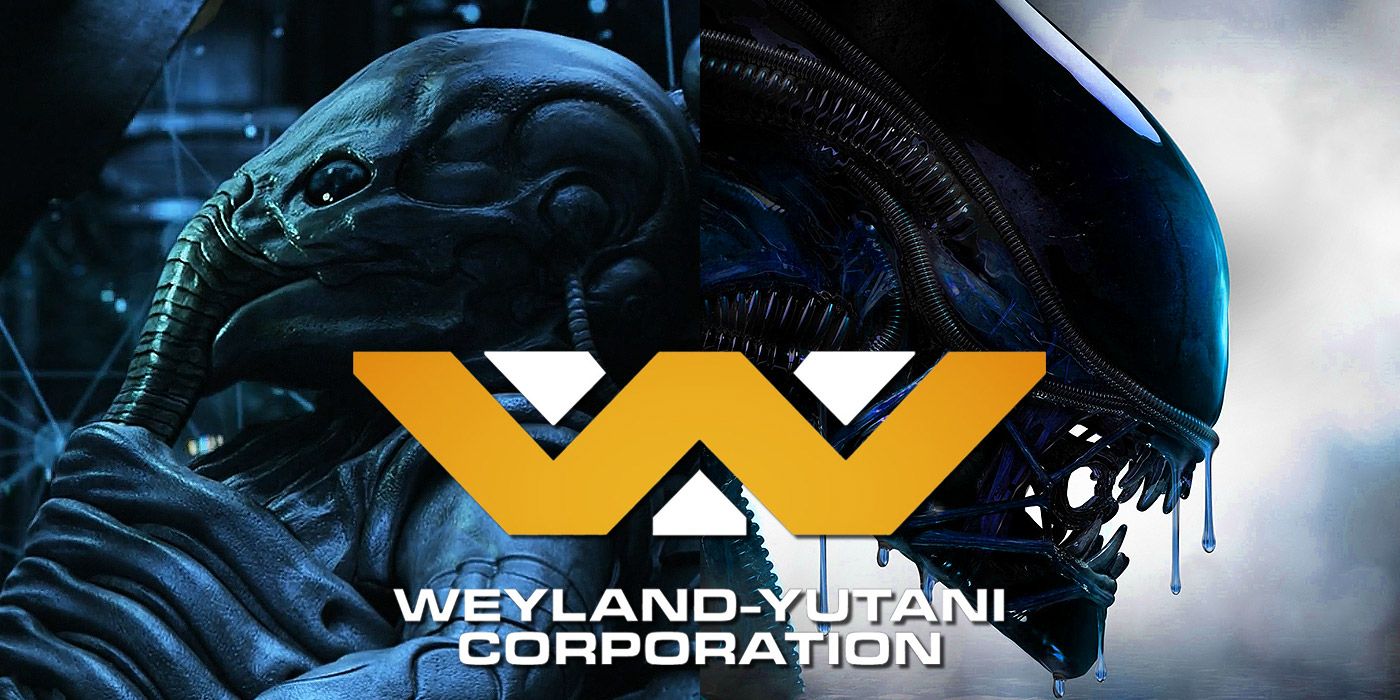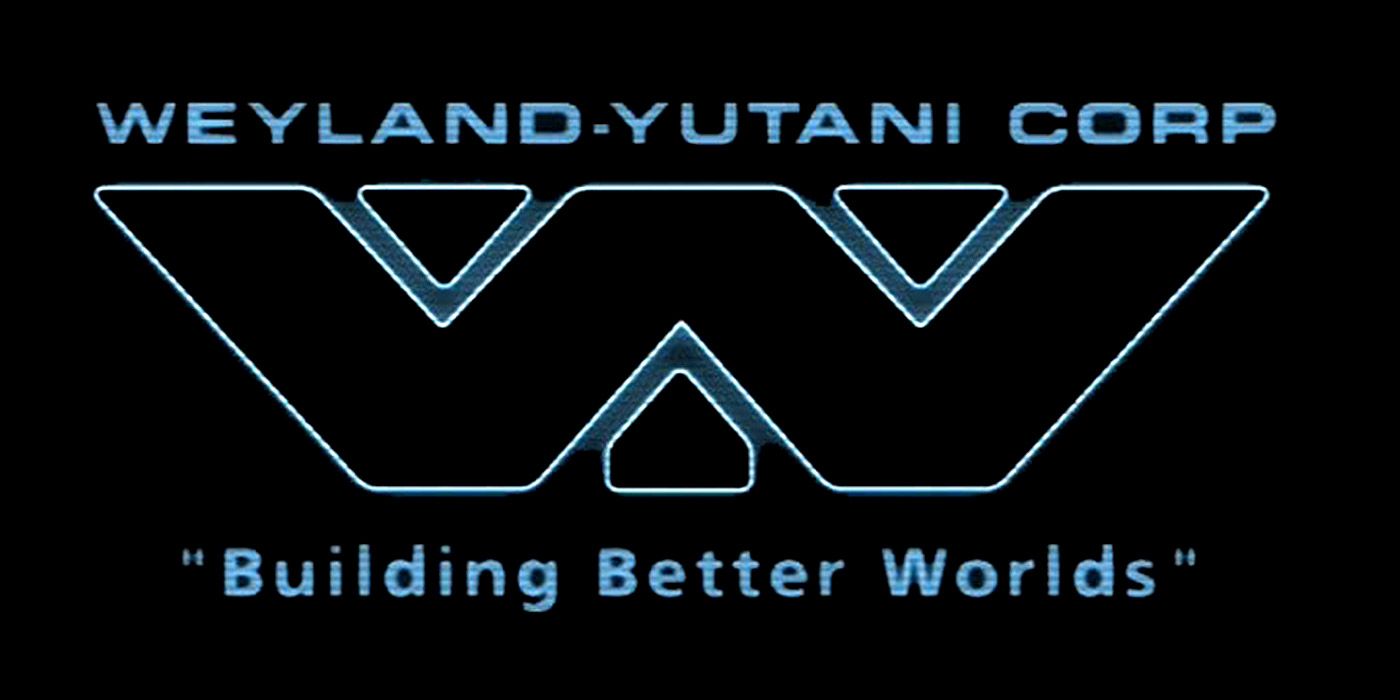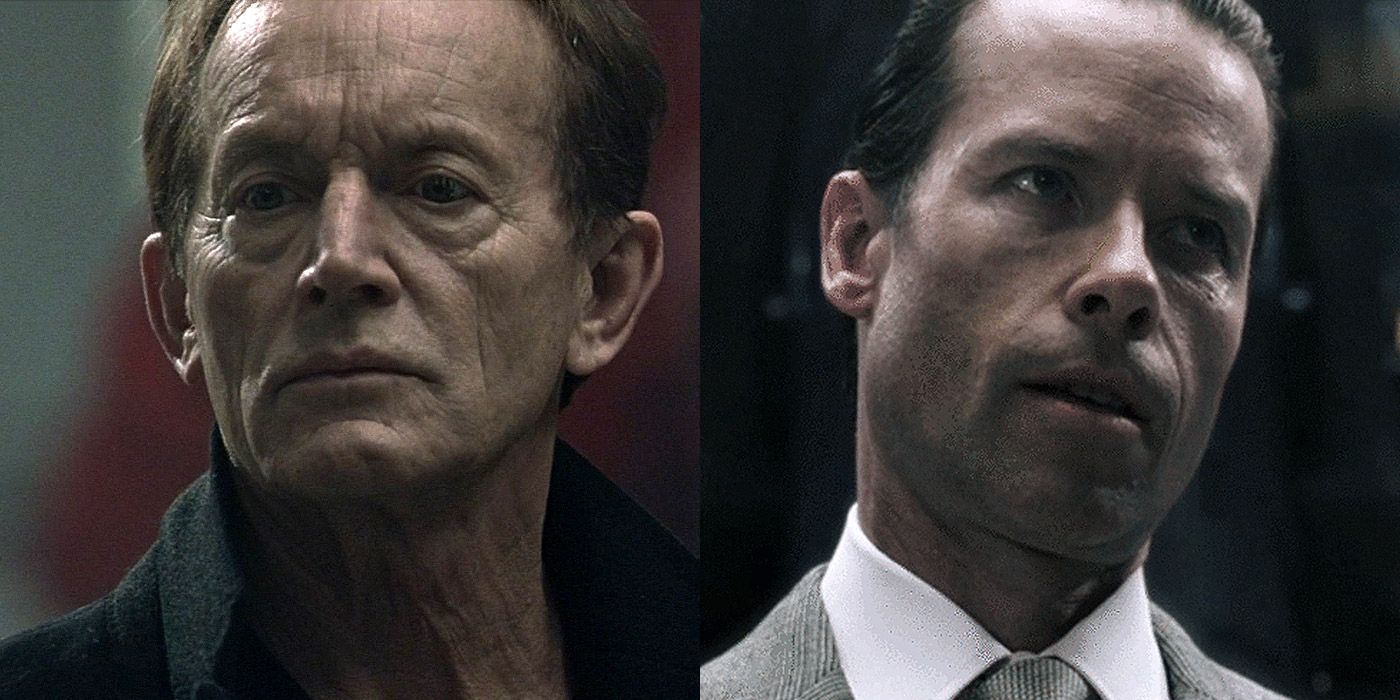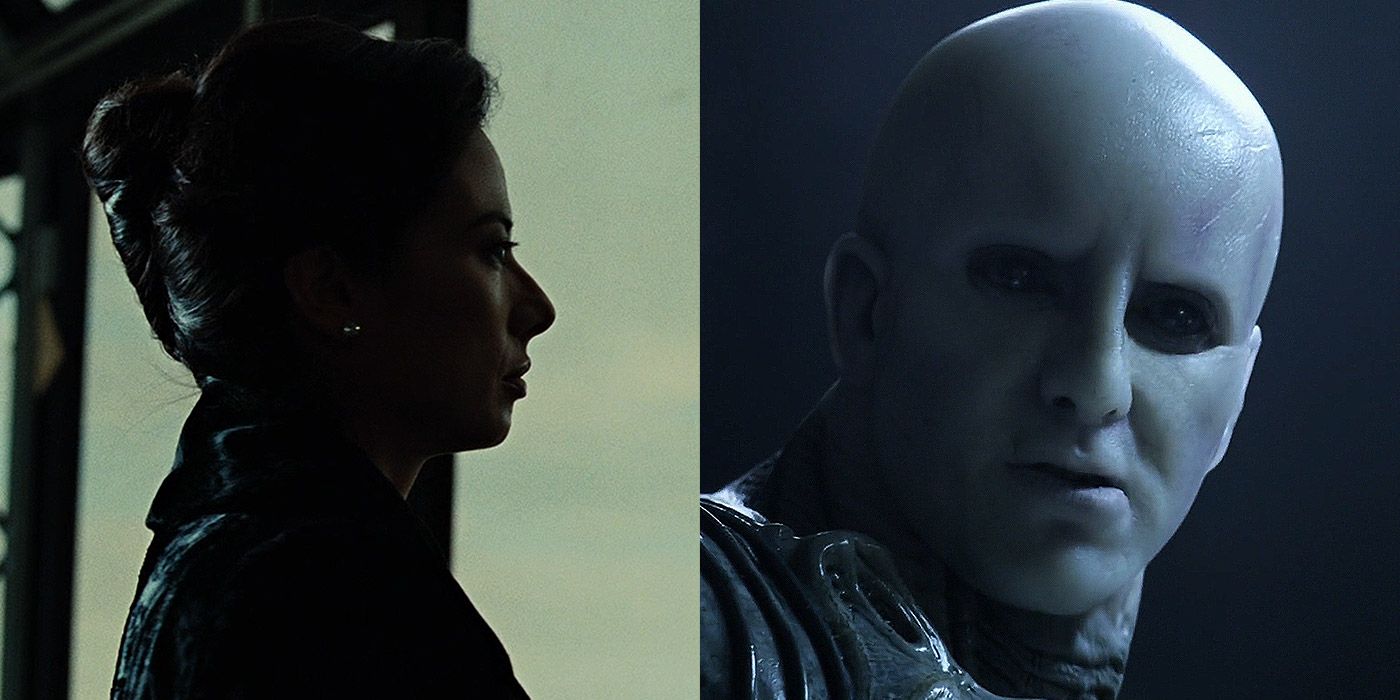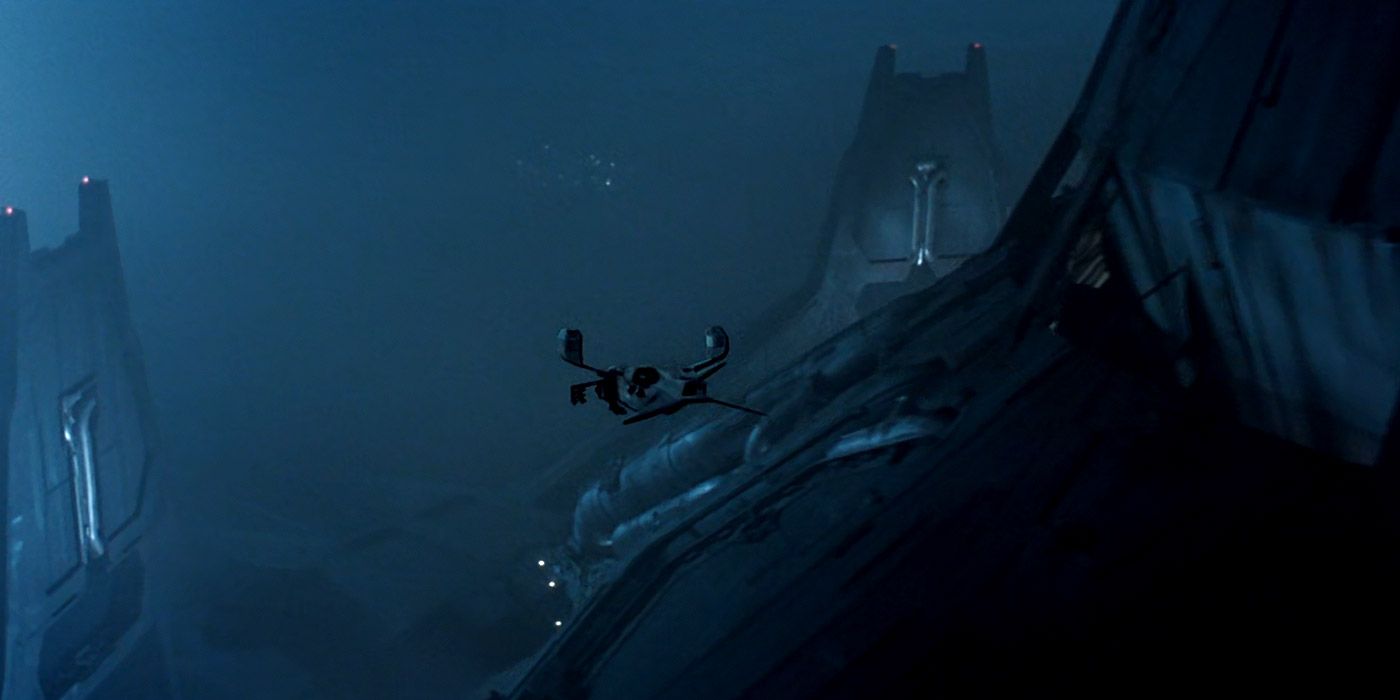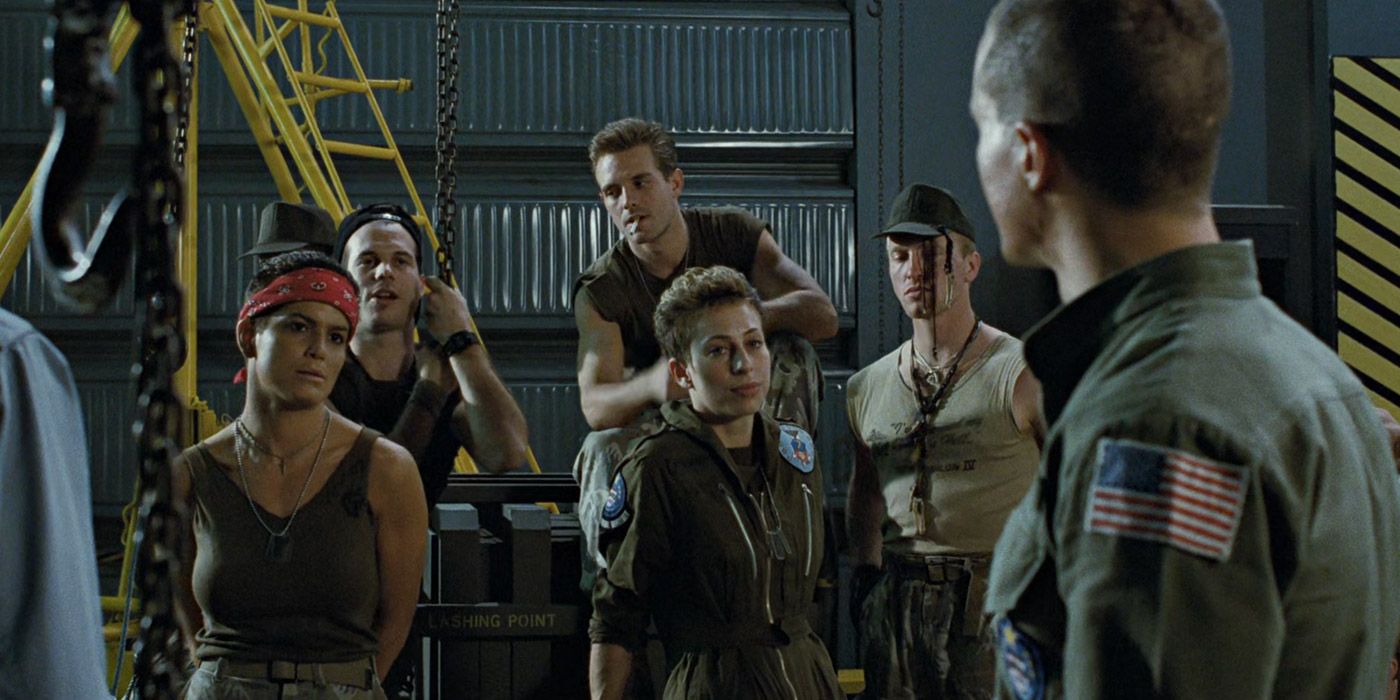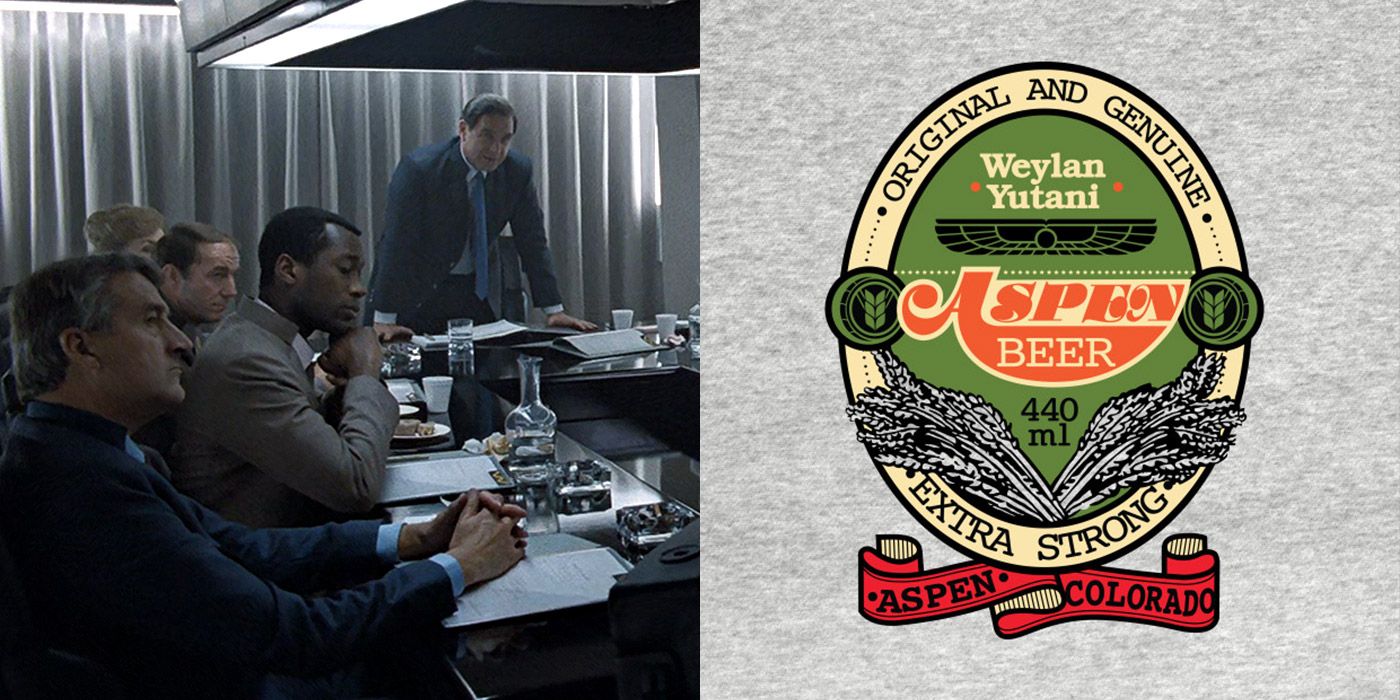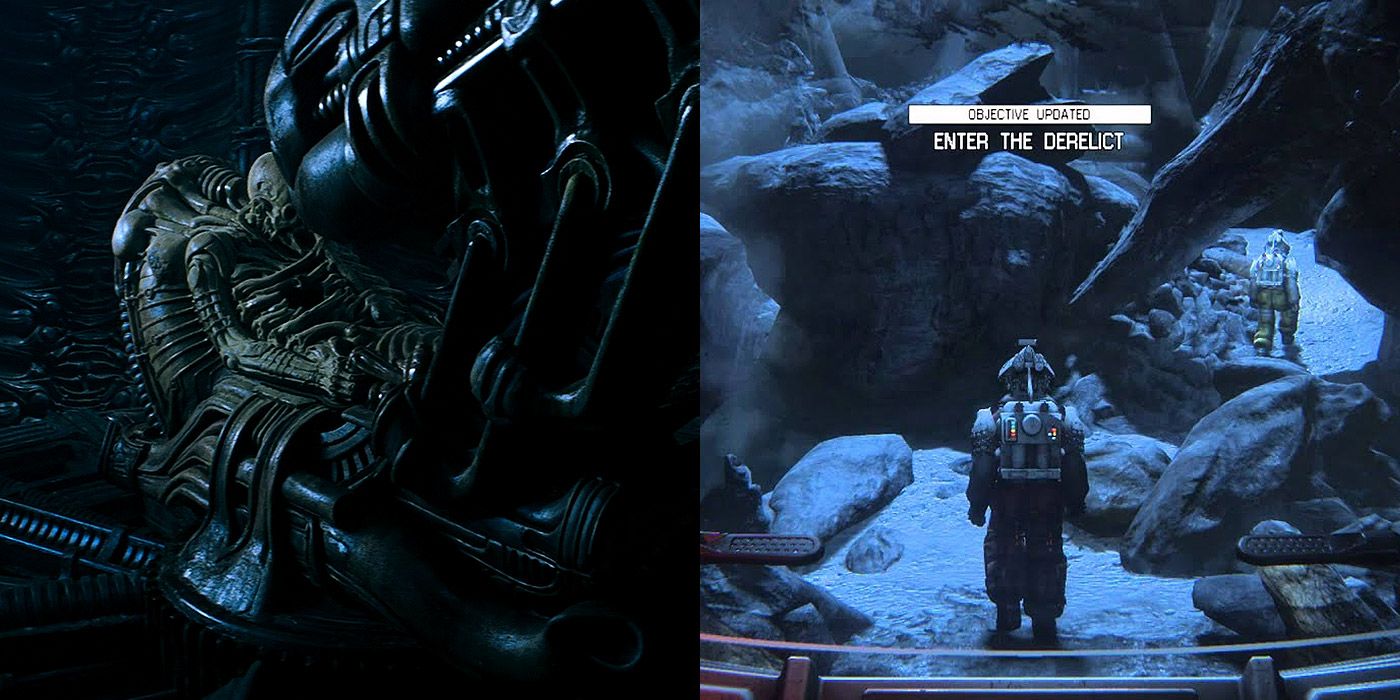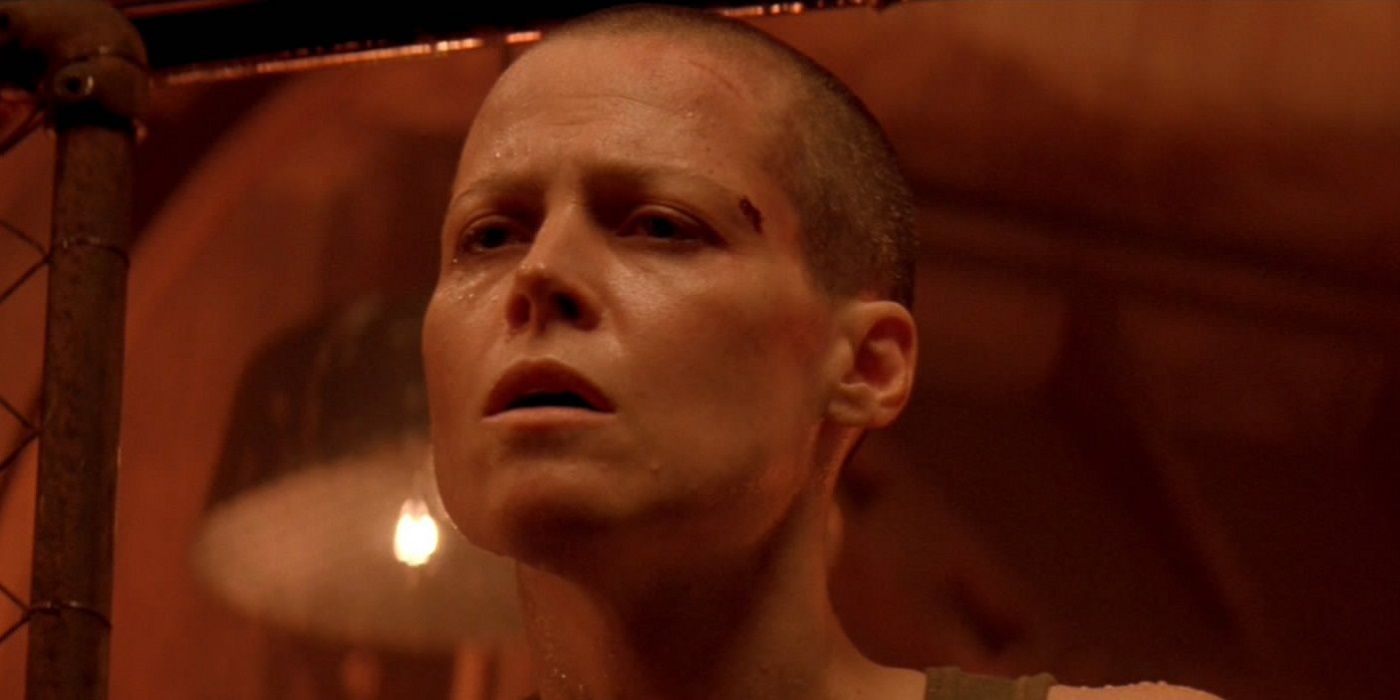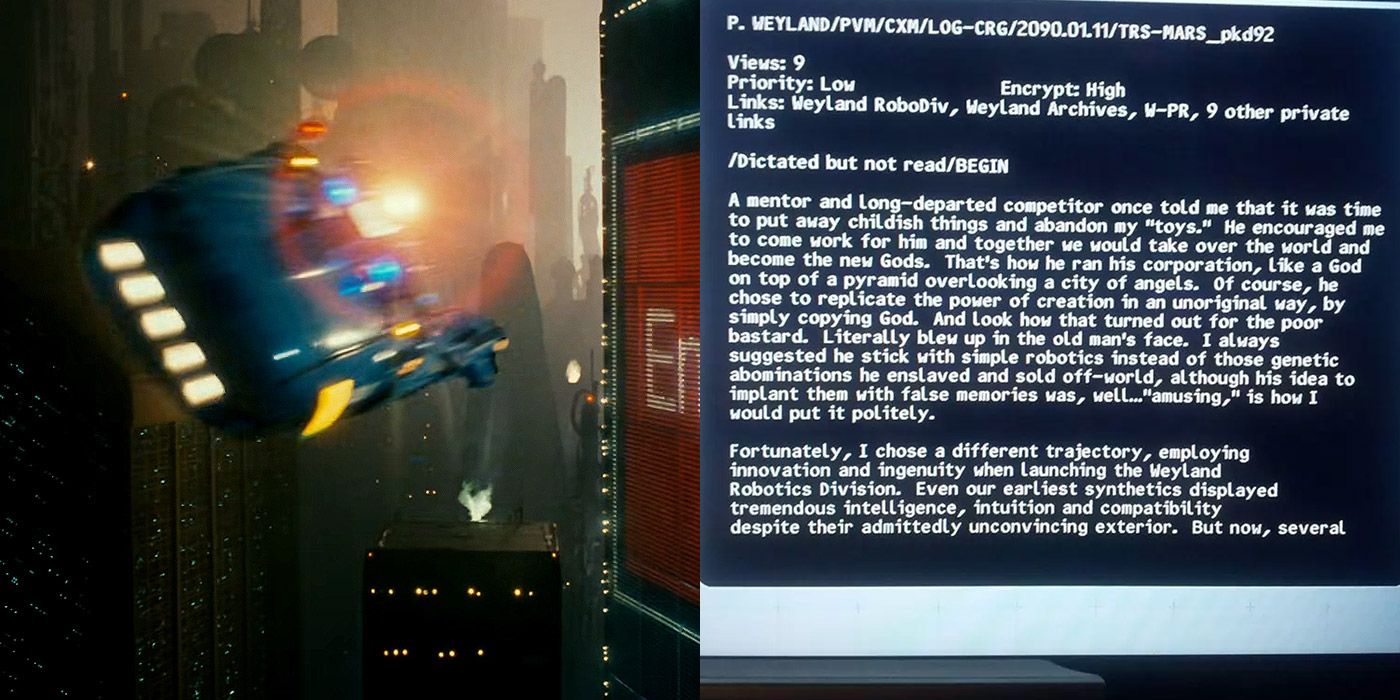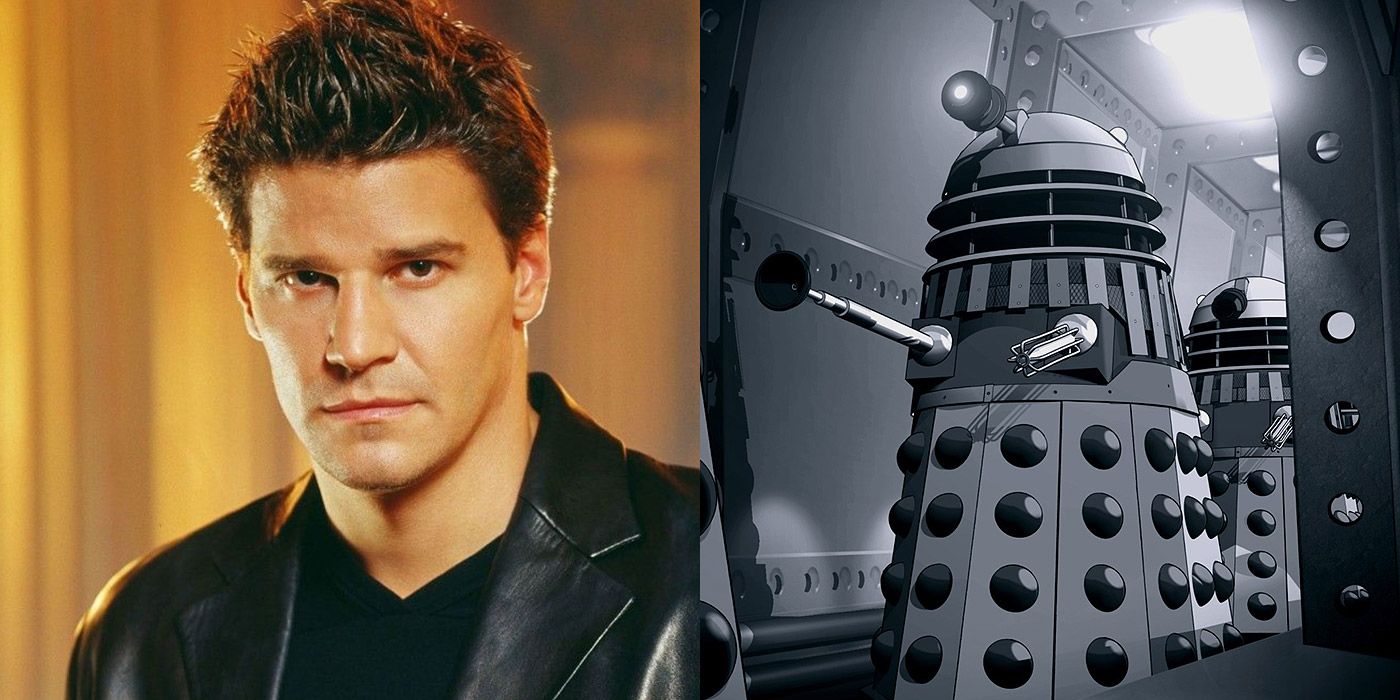The iconic pop culture phenomenon known as the Alien franchise centers heavily on the concept of a gigantic mega-conglomerate seeking the titular creature for the purpose of expanding its bio-weapons division. It's an illustrative comparison not just to out-of-control corporatism, but reckless meddling with biological viruses and other forms of bio-warfare by major health institutions.
Weyland-Yutani is the company responsible for so much of the madness in the films, and their history is colorful. They began as a seemingly benign industrial firm, before growing to enormous size, and hooking its claws and tendrils into every facet of human existence, from the government to the media, and beyond.
Its Name
While Alien fans are quite used to the title of Weyland-Yutani at this point, there are a few anomalies to consider. Originally, super-famous conceptual artist Ron Cobb came up with the conceptual design for the company logo, calling it "Weylan-Yutani."
The impetus, according to Cobb, was to make it sound like England had been "Japanimized," due largely to Japan's rising corporate dominance during the 70s and 80s. He took inspiration from the name "Leyland-Toyota," and made a few adjustments. Later on, a "d" was added for Aliens, and the rest is history.
Historical Origins
Although attempts were made to create an origin story for Weyland-Yutani in the spinoff Aliens vs. Predator film, that has since been retconned in favor of Prometheus canon. In AVP, Charles Bishop Weyland (the inspiration for the future Bishop android) discovered an ancient pyramid built by Predators under the Antarctic ice.
He would lose his life to a Predator in that film, but it was the last audiences would see of that particular company. The critically divisive spinoff film Prometheus canonized the official history of the company as having started in 2012 under Peter Weyland, a man who would stop at nothing to learn the secret of biological immortality.
The Yutani Connection
The origins of the Weyland-Yutani merger have been retconned several times throughout the Alien franchise, leading many to believe that the former absorbed the latter. In reality, the Yutani corporation was responsible for a hostile takeover of the company in 2099, ten years after the disastrous events of Prometheus.
This update ended up jettisoning Aliens vs. Predator: Requiem out of canonical continuity. In that film, the founder of the corporation acquires a Predator's plasma caster, which was converted into a pistol. The tech supposedly helps jumpstart her company, putting her at odds with the Weyland Industries that existed in that time period.
How It Makes Money
Originally, the Weyland Corporation under the direction of Peter Weyland was involved in the creation and production of several groundbreaking technologies, specifically related to computing, energy production, medical technology, security, and of course, planetary terraforming. It was that last one that would bring in the dollars.
Once firmly established as a galactic powerhouse conglomerate, Weyland-Yutani began dabbling in things best left untouched. Its most infamous venture was its bio-weapons division, specifically designed to either produce or acquire dangerous biological weapons for the purposes of planetary or urban pacification.
Their Relationship With The Colonial Marine Corps
Aliens introduced fans to the Colonial Marines, a group of hard-talking, hyper-aggressive special ops soldiers employed primarily in urban pacification. In the first draft of the screenplay for the original Alien film, Earth is at odds with a rogue Communist government operating under its own discretion, and the two saber-rattle incessantly, which may have prompted the need for Marines in the future.
Nevertheless, Weyland-Yutani may not control the Colonial Marines directly, but it certainly has massive political pull. In addition, the company helped develop a lot of the weaponry used by the Colonial Marines, many of which rank high on fan lists of weapons they want to see science create.
It's A Jack Of All Trades Company
Weyland-Yutani might be best known for its galaxy-wide operations, but the truth is that it has a hand in almost every industrial sector. It was a major proponent of galactic expansion, and found common interest with many governments and bureaucratic divisions. The novelization of Aliens speaks of the Extrasolar Colonization Administration, which the company routinely rubbed shoulders with.
It also had hooks in manufacturing, media, and even alcohol. Indeed, Weyland-Yutani canned its own brew in the form of Aspen Beer, which was featured in the first film. It should not be confused with the Aspen Brewery Company, a real corporation based out of Aspen, Colorado.
Why It Failed To Acquire A Xenomorph
One of the largest plot holes in the Alien franchise occurs between the first and second films. While both are masterpieces, it's puzzling why James Cameron never thought to explain how the company failed to nab a xenomorph specimen after erecting a colony on LV-426, which had been around for twenty years at that point. It's one of several things that don't make sense about Aliens.
The video game semi-sequel Alien: Isolation bridges the gap between the two films, and provides an explanation as to why the extraterrestrial distress call from the derelict ship was not picked up by Weyland-Yutani later in the future. Other non-canon material has attempted to explain why the company could never locate the derelict ship on such a small planetoid, but it's still hard to swallow.
Rise, Fall, Rise Again
As a galactic mega-conglomerate, Weyland-Yutani epitomized the worst aspects of corporatism, corrupting the capitalist structure and turning itself into an entity with far too much political power. It had its hooks in nearly everything, but with that power came increased scrutiny, and eventually, problems.
After the death of Ellen Ripley in Alien 3, the company suffered a series of massive financial blows, lost contracts, and finally, a ban on mega-corporations that led to its collapse. The United Systems Military acquired most of its assets, including pertinent info on the xenomorph, which they attempted to harvest. After years of lying dormant, Weyland-Yutani emerged again, determined as ever.
The Possible Blade Runner Connection
Fans have been speculating for years as to whether the Alien and Blade Runner franchises take place in the same universe, and to date, there's nothing specifically concrete to nail that assumption down. However, the evidence is there, and it's fairly convincing, particularly since the release of 2012's Prometheus.
Both Weyland-Yutani and the Tyrell Corporation appear to have some sort of a connection. A deleted speech by Peter Weyland for the Prometheus steelbook Blu-ray specifically references Eldon Tyrell's corporate headquarters, his replicant creations, and his eventual murder at the hands of Roy Batty. Whether this connection is left unresolved or not, remains to be seen, especially given the differences between Blade Runner and its original source material.
Impact On Popular Culture
A nefarious super-corporation like Weyland-Yutani does not go unnoticed within the annals of pop culture, and many franchises have enjoyed referencing the company either directly, or indirectly. For instance, Joss Whedon's spinoff series Angel depicts Weyland-Yutani with tongue-in-cheek humor as a client of the evil Wolfram & Hart law firm.
Other references include 2010's The Rig, the animated reconstruction of the lost 1966 Doctor Who serial "The Power of the Daleks," and the pilot episode of 2002's Firefly, another Joss Whedon show. Whedon penned the script for the critically divisive Alien Resurrection in 1997, lending further credence to this connection.

